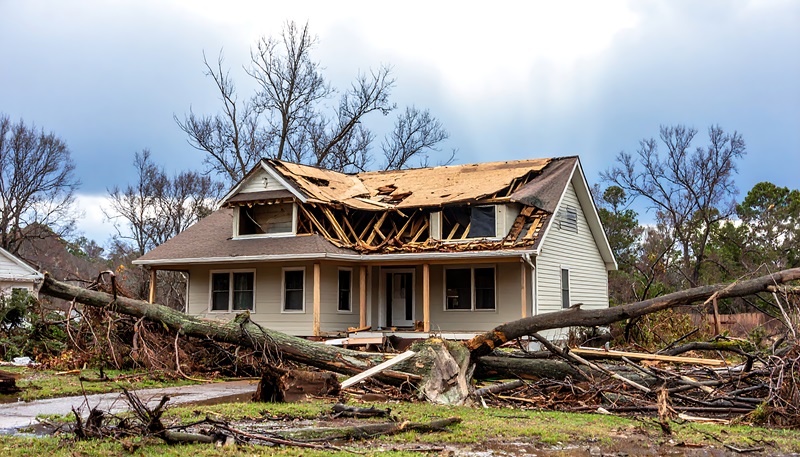Rep. Sheila Cherfilus-McCormick from Florida has reintroduced the Federal Disaster Housing Stability Act, legislation drafted to protect renters and homeowners from displacement in the wake of federally declared disasters.
Originally introduced in the 118th Congress, the Federal Disaster Housing Stability Act provides critical housing protections for families experiencing economic hardship due to natural disasters, including a 120-day moratorium on evictions and a six-month moratorium on mortgage foreclosures during a national disaster.
“Floridians and Americans across the country are seeing the devastating impacts of natural disasters escalate year after year,” said Rep. Cherfilus-McCormick. “Whether it’s floods, hurricanes, or wildfires, families deserve time and stability to recover, without the added fear of losing their homes. This bill is a lifeline to ensure disaster doesn’t become displacement.”
Extending Protections
The Federal Disaster Housing Stability Act seeks to prevent evictions and foreclosures for individuals and families facing economic hardship during a national disaster. Specifically, the bill provides a 120-day moratorium on evictions for nonpayment of rent or other fees during a national disaster. The bill also includes a foreclosure moratorium that would prevent foreclosures on mortgages for six months once the moratorium is declared.
“When natural disasters strike, they displace people from their homes, their jobs, and their communities, creating significant financial challenges. Yet homeowners and renters do not automatically receive protections from foreclosure and eviction in the immediate aftermath,” said Alys Cohen, Director of Federal Housing Advocacy at the National Consumer Law Center. “The Federal Disaster Housing Stability Act will protect disaster survivors from displacement and home loss and help keep neighborhoods intact.”
Properties in the Line of Fire
Still in the midst of the 2025 hurricane season, which generally lasts from June 1, 2025 and runs through November 30, 2025, Cotality’s 2025 Hurricane Risk Report recently examined the growing financial and social costs of increasing hurricane risk, with special attention to areas of the U.S. that are not as prepared to weather the storms. Nationwide, Cotality identified more than 33.1 million residential properties, from Texas to Maine, with a combined reconstruction cost value (RCV) of $11.7 trillion at moderate or greater risk of sustaining damage from hurricane-force winds.
Focusing on storm surge flood risk, Cotality identified more than 6.4 million residential properties with a combined RCV of $2.2 trillion at moderate or greater risk of sustaining damage from storm surge flooding.
“Currently, our country’s lowest-income communities are facing a severe shortage of affordable and accessible housing. When a disaster damages or destroys available homes, the shortage of housing stock can drive an increase in housing costs, leading to rising eviction, displacement, and, in worst cases, homelessness,” said Renee Willis, President and CEO, National Low Income Housing Coalition. “By enacting Congresswoman Cherfilus-McCormick’s ‘Federal Disaster Housing Stability Act,’ Congress can implement crucial measures that prevent landlords from displacing families affected by disasters or imposing excessive rent increases on low-income and marginalized households during their time of need.”
As Cotality’s report found, more than 656,000 homes in Charleston, South Carolina; Wilmington, North Carolina; and Virginia Beach, Virginia are at risk of storm surge flooding if a hurricane makes direct landfall. Additionally, Cotality data shows homes in Virginia Beach, Virginia remained on the market 32% longer in 2025 than in early 2024, while homes in Wilmington, North Carolina remained on the market 19% longer during the same time period.
Communities from Port Isabel, Texas to Bar Harbor, Maine are faced with flood and wind risk that threaten both home values and security. With hurricane risk intensifying and coverage retreating, the question is not if other communities will feel the effects … it is a matter of where and when.
According to the National Hurricane Center, there were five $1 billion hurricane events in 2024, with an estimated $124 billion in damage, making it the third costliest hurricane season in the past quarter century, behind the $339.2 billion year of 2017, which produced Hurricanes Harvey, Irma, and Maria, and the $264.7 billion year of 2005, when Hurricane Katrina made landfall in the U.S.
“As we prepare for what experts say will be another severe hurricane season, this legislation is urgently needed,” said Rep. Cherfilus-McCormick. “I urge my colleagues to support this common-sense measure to protect vulnerable families before the next disaster strikes.”
Click here to read the full text of the Federal Disaster Housing Stability Act.





